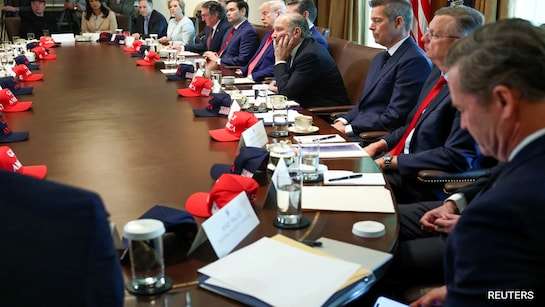In a concerning cybersecurity incident, a hacker has reportedly gained unauthorized access to sensitive data belonging to the United States government through a third-party mobile application used by a former aide to former President Donald Trump. The breach has reignited debates about digital security vulnerabilities and the potential risks posed by unsecured communication platforms within political and governmental circles.
According to preliminary investigations, the breach occurred through a widely-used productivity and scheduling app that had not been properly vetted for government-level security. The application, reportedly used by a former senior Trump administration official, acted as an inadvertent entry point, allowing the hacker to exfiltrate confidential files and internal communications.
Cybersecurity experts warn that the incident underscores persistent gaps in digital hygiene practices, especially among high-ranking officials who may rely on personal or non-secure third-party tools to manage professional tasks. “This type of attack exploits not just technical vulnerabilities but also behavioral ones. When officials use unverified apps for sensitive work, they open doors to major breaches,” said one cybersecurity analyst familiar with the case.
The attacker is believed to have targeted user credentials, exploiting weak authentication measures to infiltrate linked networks. Sources within the federal cybersecurity infrastructure confirmed that the data obtained included internal documents, personnel communications, and possibly location-tracking information from connected devices. While a full assessment of the compromised material is ongoing, officials have acknowledged that the breach is being treated as a serious national security matter.
The app in question, while popular among political operatives and campaign staffers for its convenience, was never formally approved for use on government devices. The former Trump aide’s continued use of the platform beyond their term in office, combined with syncing to personal and semi-official accounts, may have contributed to the incident’s scope.
This development comes amid broader concerns over election-year cybersecurity in the United States. As government agencies work to bolster defenses against foreign and domestic threats, this breach highlights how even small oversights can lead to significant security lapses. With heightened scrutiny on digital communication tools, lawmakers are expected to call for tighter regulations and more rigorous vetting of third-party applications used by government personnel.
Meanwhile, the Department of Homeland Security and the Cybersecurity and Infrastructure Security Agency (CISA) are leading the investigation alongside federal law enforcement partners. No group has yet claimed responsibility for the hack, but officials have not ruled out the involvement of state-sponsored actors.
In conclusion, the breach serves as a stark reminder of the ongoing challenges facing national cybersecurity. As technology continues to integrate deeply into the functions of governance, ensuring secure digital practices among all public servants — past and present — is not only prudent but essential. The incident is likely to prompt further internal reviews and may result in policy changes concerning the use of non-government apps by officials handling sensitive information.



